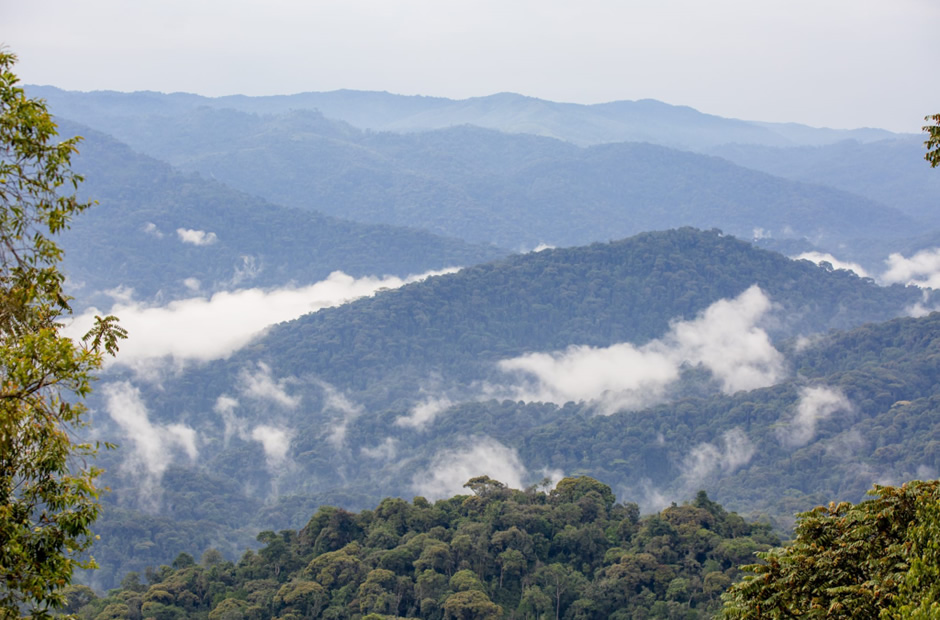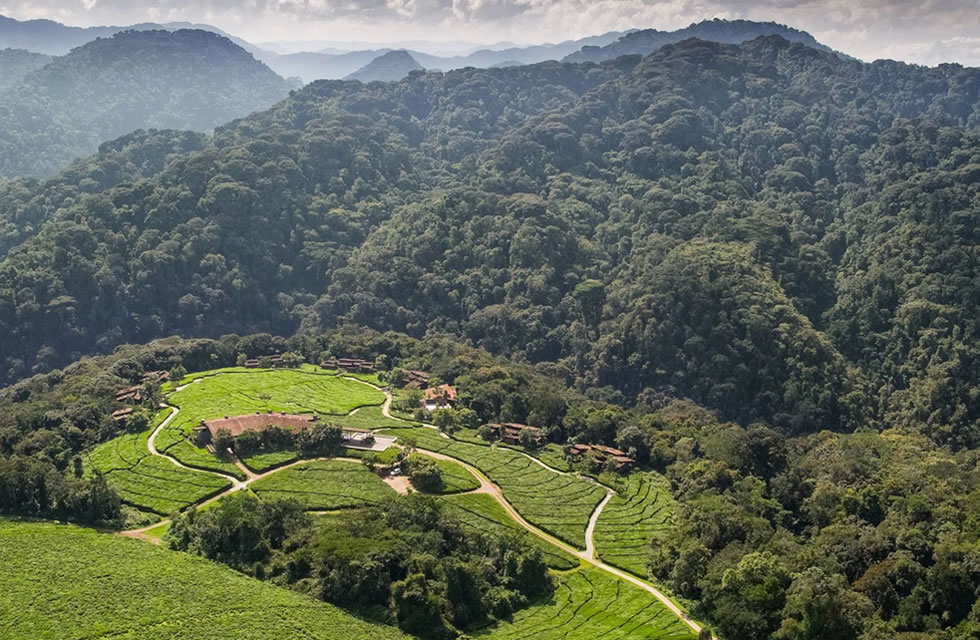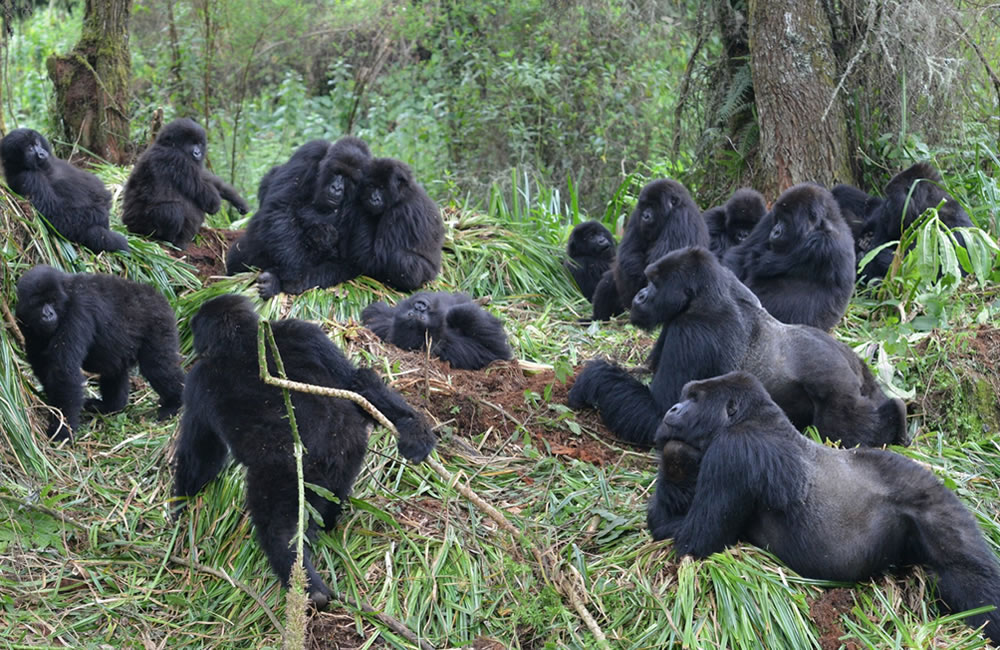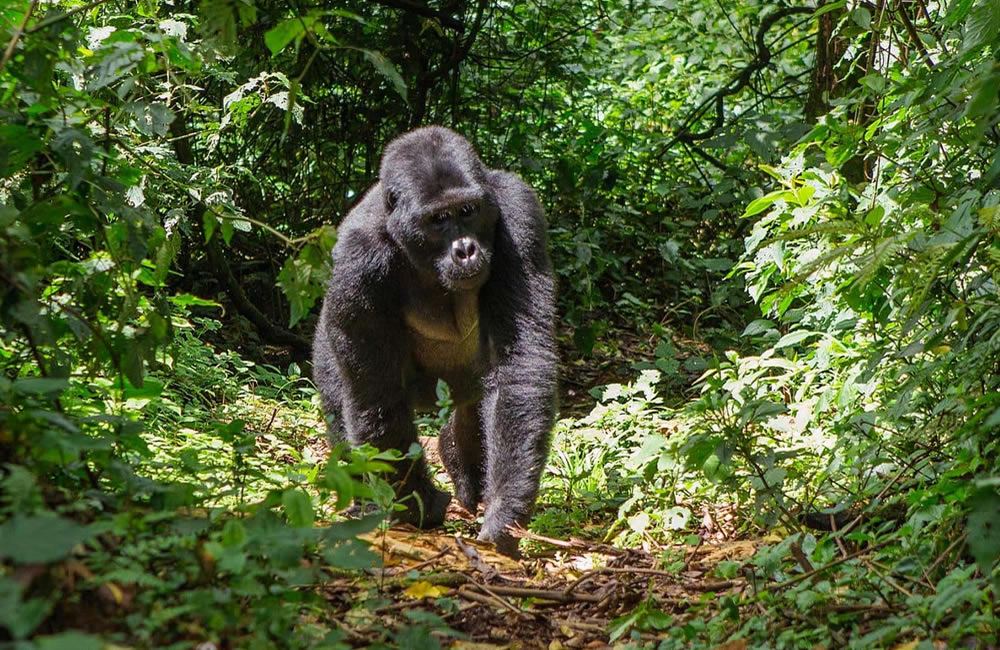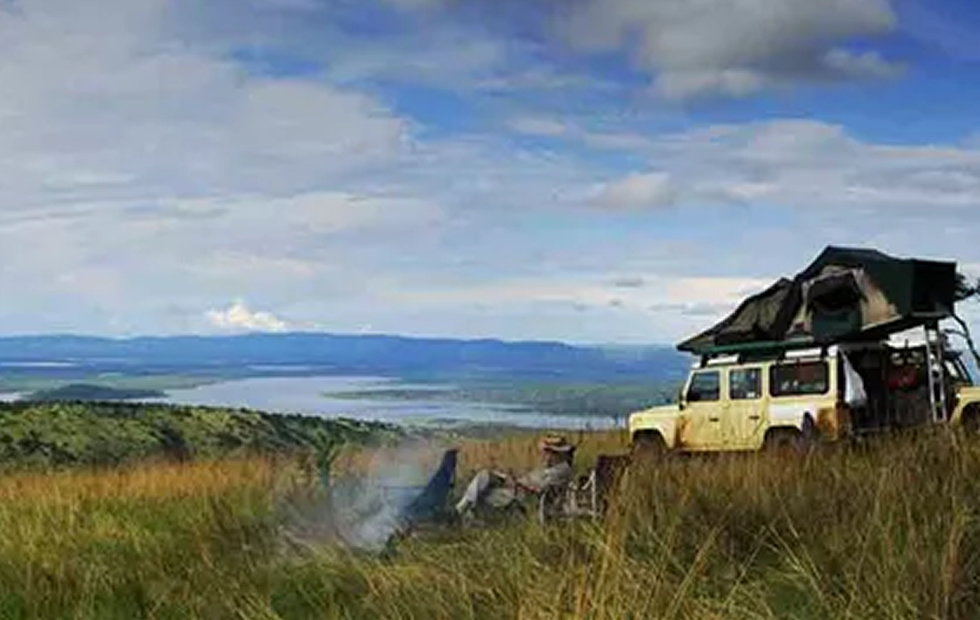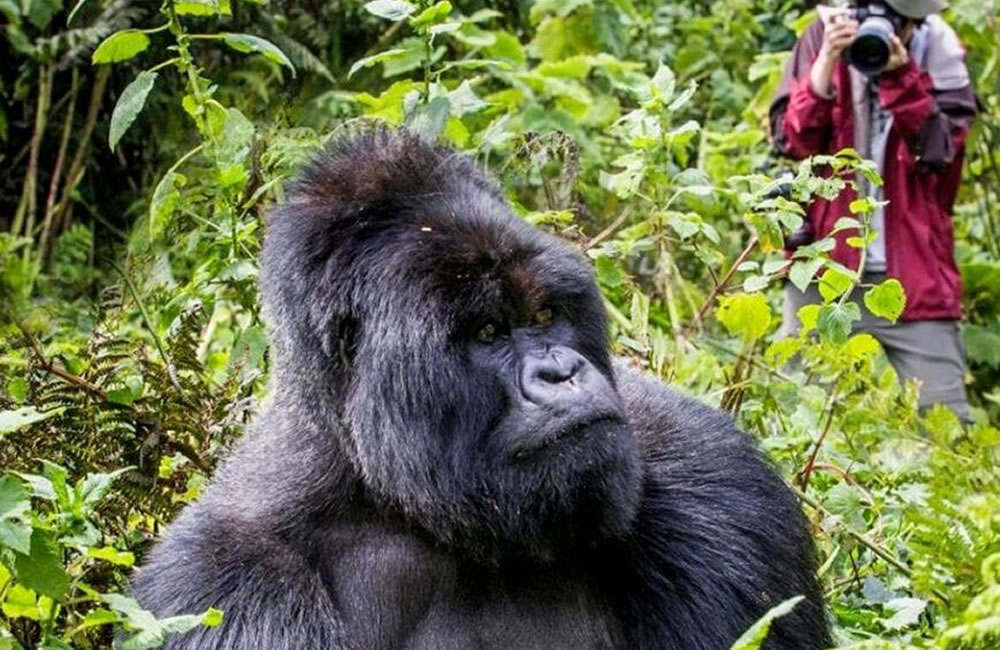Whenever a name “mountain gorilla” is mentioned, many people’s minds drift to Africa which is the only continent that harbors them. However, these endangered species are found in a few selective countries (Uganda, Rwanda and Democratic Republic of Congo) and a gorilla trekking safari to any of these destinations is a life time experience that you will live to tell. Trust me a face-to-face encounter with these human-like apes is a life changing experience which is associated with magnificent adventures.
Where to trek the gorillas from
A thrilling gorilla trekking tour is restricted to a few remote but easily accessed destinations in the three countries of Africa. Mainly known for their elegant lifestyle, Western lowland gorillas can be well trekked in Democratic Republic of Congo’s primeval forests. Uganda and Rwanda are blessed with the rare mountain gorillas and Uganda has the highest number of about 400 gorillas. In these two countries, the best points of having a glance at the gorillas are; Bwindi Impenetrable National Park of Uganda and Volcanoes National Park of Rwanda.
Gorillas have a human-like way of living and they live in close-knit family groups, have many emotional gestures that we human beings have, like delight, get irritated and have affections. All these characteristics make them the second closest primate to human beings, second to the chimpanzees.
When should you tour and what to expect
Though a gorilla trekking safari can never be a regret at any time of year in Uganda and Rwanda, there are best times to enjoy this wonderful experience. Both countries share almost the same weather changes each with two dry seasons; mid-December- February and June-September. These are the best seasons to visit these East African countries specifically for gorilla trekking. However, the activity becomes more tiresome during a wet season because of the wet and muddy steep slopes plus tangled vegetation which you must penetrate through before encountering the gorillas. Never the less, the hustle is worth it once you get close to the primates in their natural habitats.
Once you have located and found a gorilla family, first relax for about an hour at the sometime viewing the gorillas at a close range as they feed and groom. Witness the playful lifestyle of young gorillas in the wild as they jump from one end to another tumbling about the undergrowth. They do this well assured of the security from the great male silverback.
However, you are required to meet some conditions before embarking on this adventurous activity like fitness, equipped for humid and muddy conditions of the rain forest hike. Your health is one of the key considerations because gorilla trekking is physical and gorillas are susceptible to many human diseases.
Chimpanzee Trekking
Since its Africa, the adventure that surrounds the great apes does not end with the gorillas. Chimpanzee trekking is one of the rapidly growing tourism activities in Africa. Viewing the chimps and other primate species on your gorilla trek is not enough but making an actual visit to some of the stand-alone chimpanzee trekking destinations is the best idea. There are several places in Africa designated for chimpanzee trekking and among them include; Mahale Mountains and Gombe Stream of Tanzania, Queen Elizabeth, Murchison and Kibale National Parks of Uganda.
Chimpanzee and Gorilla trekking are quite different each with its own unique adventure expossed to tourists. Chimps live in a more terrain environment and they are harder to find while trekking compared to the gorillas. In most cases, chimpanzee trekking is an additional activity to a big game safari but for a gorilla-like face-to-face encounter experience, it is the best alternative. Just like gorillas, chimp trekking takes an hour.
How to go Gorilla Trekking
Unlike chimpanzee trekking which is still in its initial stages, gorilla trekking, has tighter regulations which a visitor must adhere to. To be on a safer side, you are advised to use a credible tour company on your safari to Uganda and Rwanda .Your are required to obtain a gorilla trekking permit which gives you a go-ahead to enjoy the activity. These permits are limited most especially during the peak seasons and therefore a visitor should book in time before his/her gorilla trekking tour.
Why go for a gorilla trekking safari
The mere fact that gorillas are not habituated like other animals makes it clear that you can’t find them in a zoo .This is why you must make a gorilla trekking safari to Rwanda and Uganda if interested in the activity and view the gorillas in their natural habitats. The best places for trekking these elegant primates are; Bwindi Impenetrable forest and Volcanoes National Parks of Uganda and Rwanda consecutively.
You don’t need to worry about penetrating through dense forests because there are guides who will move along with you on your trek
Don’t forget to carry a camera along with you for taking clear photographs with these rare primates. However, you are advised to keep the flush of your camera off to avoid irritating the gorillas. Also keep a distance of about 6 meters away from the gorillas to avoid accidents.
About gorilla trekking
Gorilla trekking in simple terms means penetrating through dense forests and narrow paths for hours in searching for the mountain gorillas. For a successful trek, make sure you are fit, in normal conditions and well equipped for the tough environment. Some of the key things that you should carry for security purposes include; broken-in hiking boots, knee-high gaiters, double layered socks and more others. Please take note that unless you prove that you are not sick, you won’t be allowed to go trekking because gorillas are highly susceptible to human illnesses.
When to trek
The climatic conditions of these two countries (Uganda and Rwanda) are identical and it’s more weather friendly to come for gorilla trekking during the two dry seasons of the year. These dry seasons are mid-December to end of February and June to late September. However, even during these seasons, expect a humid and wet environment with plenty of mud.
You will need to travel quite a long distance to reach the rainforests where gorillas are found. This means that an enough rest before the trekking day is a must to avoid complications.
Sometimes, it becomes hard to see the gorillas while in the forest and this is why a guide might ask you to keep silent while trekking. Mountain gorillas are fond of hiding in the leaves busy feeding and enjoying the heat from the sun making it hard to see them.
A gorilla safari to Uganda and Rwanda avails more than 95% chances of encountering the rare primates.
Just after finding a gorilla family, your guide will ask you to drop everything somewhere except the cameras and he/she will take you closer to them for observing and taking photographs. At this point, you are advised to avoid any irritating behaviors which threaten the gorillas. It is a live experience in the wild since there are no fences between you and gorillas and what makes it a success is the mutual respect for the primates that is require from you.
Unlike other primates, gorillas are habituated to human beings and while observing, they will continue doing their own business of napping, foraging and grooming without any fear in them.
Don’t miss out on the most interesting point of the trek and always portion your time with the gorillas well. Make sure you spend more time viewing and the remaining time taking photographs.
Sit a few meters away from a gorilla family and witness the humanity reflections in their social rituals and warm brown eyes.
In conclusion, a gorilla trekking safari to Uganda and Rwanda cannot be compared to any other tourism activity because of the life-experience that a tourist is exposed to.
